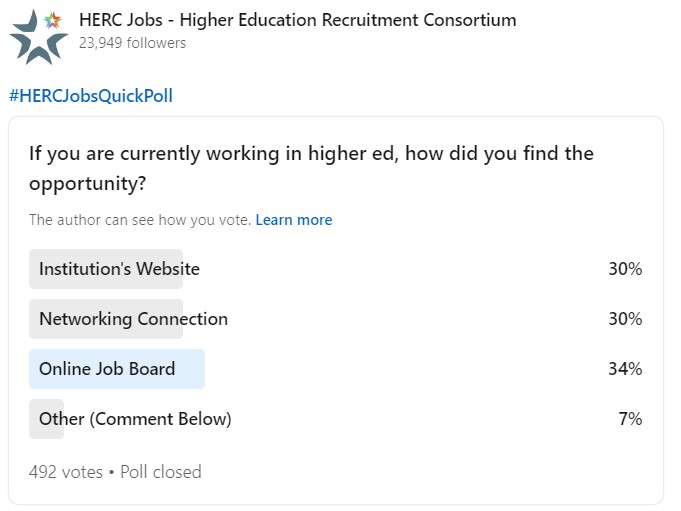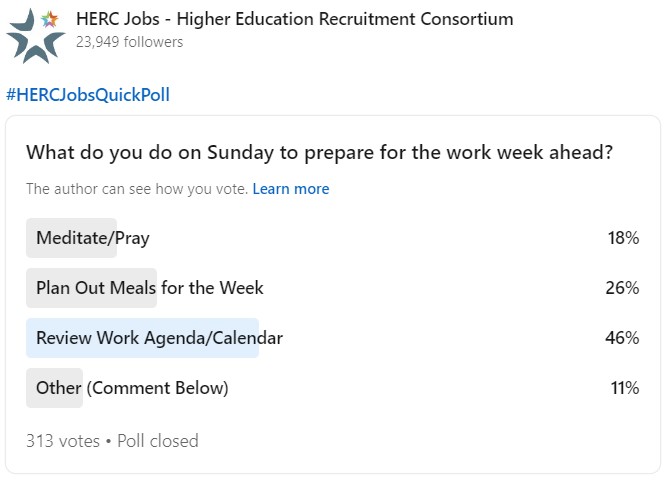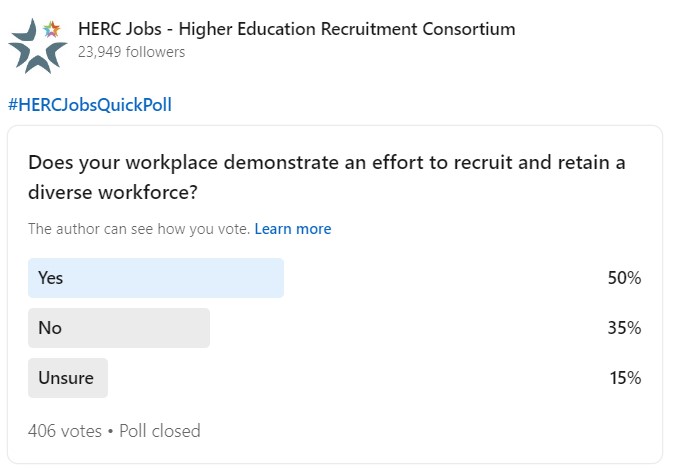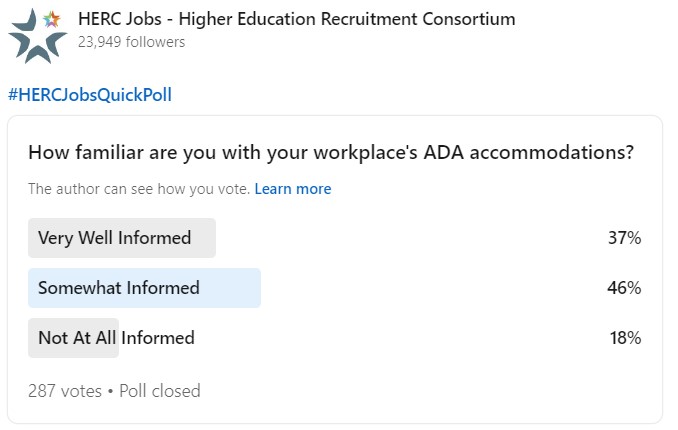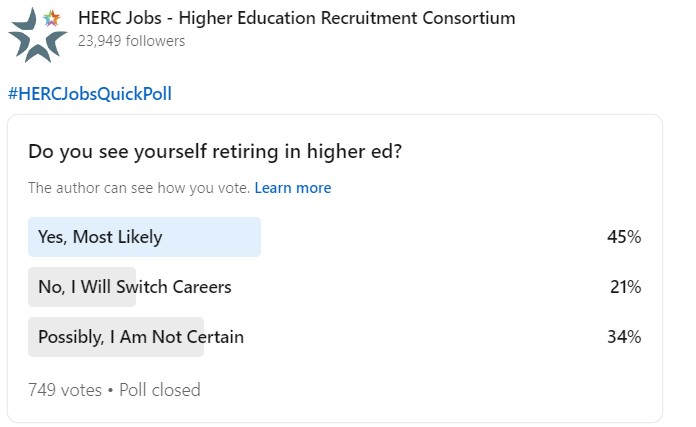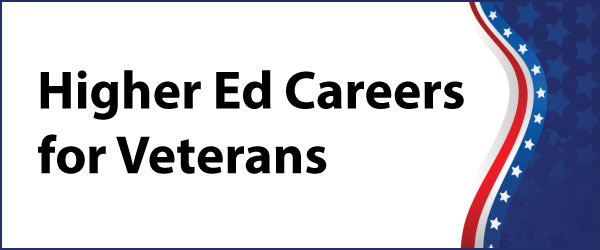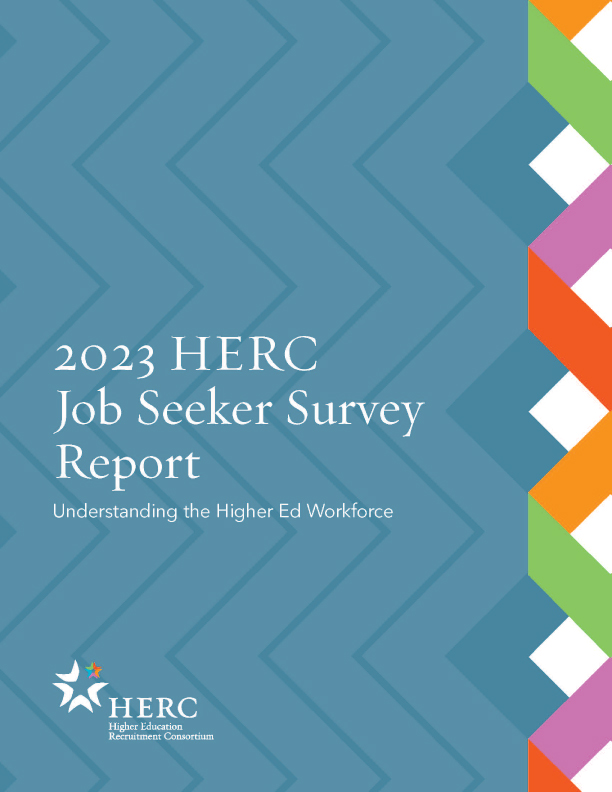
“Boomers are bad with tech.”
“Millennials are lazy.”
“Gen X’ers are too cynical.”
“Gen Z’ers don’t want to work.”
We’ve all heard the common stereotypes based on generational birth cohorts, and most of us can summon a personal example in a multigenerational workplace that supports these broad brushstroke statements. While a little intergenerational teasing might be fun when it comes to fashion or knowing why a floppy disk isn’t floppy, decisions that impact our working environments are sometimes made based on these flawed assumptions. Generational differences can become a source of tension or conflict among colleagues and when not addressed can have a tangible impact on how you (and your colleagues) feel about staying at your workplace and possibly looking for a job elsewhere.
With members of five generations currently working, age is the most dominant form of diversity found in the labor force. Of the higher ed professionals and job seekers that took the 2023 HERC Job Seeker Survey, 17% reported being 22-32-year-olds, 30% 33-43-year-olds, 26% 44-54-year-olds, 21% 55-65-year-olds, and 5% 66-76-year-olds. Interestingly, studies have repeatedly shown that the perception of generational differences is greater than actual generational differences. The practical implication of this finding is that we can actually mitigate friction caused by generational differences and leverage age diversity to the benefit of all involved – but first, we have to understand each other.
Each generation is shaped by the social, cultural, and technological developments of its time. Communication styles, work-life balance needs, technology usage, leadership styles, and career expectations may clash, creating the potential for misunderstanding and tension in a multigenerational workplace. Communication plays an essential role in bridging these generational gaps. It helps foster understanding, empathy, and collaboration among employees of different generations.
The Five Generations:
- Traditionalists/Silent Generation (1928-1945)
- Baby Boomers (1946-1964)
- Generation X (1965-1980)
- Millennials (1981-1996)
- Generation Z (1997-2012)
Here are some key generational workplace differences to familiarize yourself with[1]:
1. Communication Styles:
Traditionalists/Silent Generation: Tend to prefer formal, written communications such as memos and letters and face-to-face meetings.
Baby Boomers: Likely to appreciate face-to-face and phone conversations. They also adapted to emails as they emerged in the workplace.
Generation X: Comfortable with a blend of communication, including face-to-face meetings, emails, and instant messaging.
Millennials: Favor digital communication, including email, instant messaging, social media, and video conferencing.
Generation Z: Prefer quick, efficient, and digital-first communication, such as texting, social media, and other digital platforms.
2. Work-Life Balance:
Traditionalists/Silent Generation and Baby Boomers: Generally, these generations are more likely to separate work from personal life and may work long hours.
Generation X: They introduced the concept of work-life balance and tend to value the flexibility to accommodate family and personal life.
Millennials and Generation Z: These generations often seek a work-life integration where work and personal life blend seamlessly. They value flexibility and remote work opportunities.
3. Attitude Toward Authority and Hierarchy:
Traditionalists/Silent Generation and Baby Boomers: Often respect hierarchical structures, prefer clear reporting relationships, and tend to value loyalty to the institution.
Generation X: Tend to be more independent, appreciate a flatter organizational structure, and value results over tenure.
Millennials and Generation Z: Often seek a collaborative environment and desire regular feedback. They appreciate leaders who are mentors or coaches.
4. Technology Adoption:
Traditionalists/Silent Generation and Baby Boomers: While many individuals in these generations have adapted to technology, they may not be as comfortable as younger generations. They often prefer traditional methods of doing things.
Generation X: This generation bridges the gap between digital immigrants and digital natives. They adapt to necessary technology but also appreciate analog methods.
Millennials and Generation Z: These generations are digital natives, comfortable with using and adopting various forms of technology, and are often the drivers of digital transformation in the workplace.
5. Views on Job Stability and Career Progression:
Traditionalists/Silent Generation and Baby Boomers: Often prefer job stability and tend to stay with one employer for a longer period.
Generation X: Tend to be more skeptical about job security due to economic recessions and corporate downsizing during their formative years.
Millennials and Generation Z: Generally more comfortable with job-hopping, and they seek continuous learning and career development opportunities.
By taking the time to understand these generational differences, you can help foster an inclusive and harmonious workplace that respects and leverages the strengths of each generation.
Check out Top Articles on HERC Jobs.
About the Author: Jennifer O’Neill is the program manager for the Higher Education Recruitment Consortium. Her background includes multiple roles in higher education, including departmental administration, academic advising, student services, community college governance, and faculty positions at both community colleges and universities. She is passionate about providing sociologically-informed, data-driven educational experiences in any context and enjoys providing others with the tools they need to be more effective in their roles.
[1] Adapted from OpenAI. (2023). ChatGPT-4 conversation.





